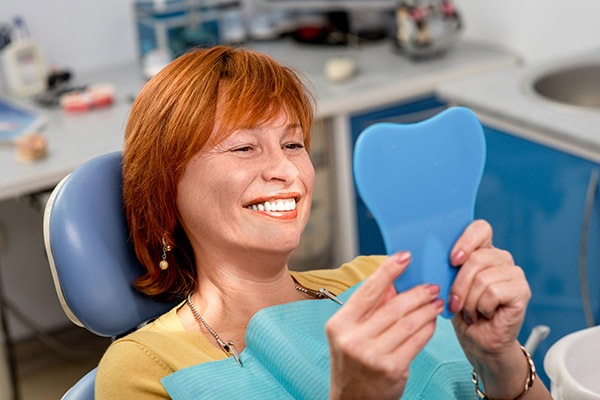 Periodontists treat issues related to the supporting structures of teeth (i.e. the gums and jawbone). This notably includes gum disease, which affects approximately 47 percent of adults over the age of 30 (according to the CDC). This review is designed to help you learn about gum disease so that you can better prevent and detect it at home.
Periodontists treat issues related to the supporting structures of teeth (i.e. the gums and jawbone). This notably includes gum disease, which affects approximately 47 percent of adults over the age of 30 (according to the CDC). This review is designed to help you learn about gum disease so that you can better prevent and detect it at home.
An explanation of gum disease from a periodontist
Gum disease is a leading cause of many oral health problems, including the loss of teeth. The good news, however, is that most cases are preventable through good oral hygiene and regular visits to a dental professional for cleaning. The following is a detailed discussion of gum disease from a periodontist.
What is gum disease?
Gum disease, also called periodontal disease, is a common oral health concern that develops when the gums are constantly under attack by bacteria, which can be found in large numbers in plaque and tartar build-up. There are two levels of severity in the realm of gum disease, which are gingivitis and periodontitis; the latter is more severe and could put the long-term health of teeth in jeopardy.
What are the symptoms of gum disease?
As mentioned, there are different levels of severity for gum disease. In the early stages, the symptoms are usually minor, such as tender gums and mild gum swelling. The gums may begin to bleed when brushed, although this is not always the case in the early stages of gum disease. As the disease progresses, the symptoms worsen, specifically as periodontitis develops. The symptoms of periodontitis include gum swelling, bleeding gums, deep gum pockets, gum recession, and bone loss in the jaw.
How can a periodontist treat gum disease?
The recommended treatment solution depends on the severity of the gum disease. Most patients can help reverse the effects of gingivitis with a routine dental cleaning procedure and healthy oral care changes at home. For periodontitis, a gum disease procedure known as scaling and root planing (deep dental cleaning) may be recommended. This involves removing plaque and bacteria beneath the gum line that is contributing to periodontitis. After treatment, the periodontist can help the patient turn their focus to the prevention of gum disease in the future.
Tips from a periodontist on gum disease prevention
The two primary factors that impact periodontal health are your oral care routine and diet. Foods and drinks that are high in carbohydrates (e.g. sugar) can contribute to the onset of gum disease. Of course, following the periodontist's instructions for oral care are important, which should include brushing and flossing regularly and using an antibacterial mouthwash as often as is recommended by the periodontist.
Call our periodontist’s office today for more information
If you have symptoms of gum disease or have a referral for gum disease treatment (or treatment for another periodontal concern), then contact our periodontist today by phone or message to schedule a visit. We are more than happy to answer your questions and assist you with your treatment needs.
Request an appointment or call Charles E. Dyer IV, DDS, MS, PC at 281-213-0900 for an appointment in our Cypress office.
Related Posts
Periodontics is a specialized field of dentistry that focuses on the prevention, diagnosis, and treatment of periodontal disease and other conditions affecting the gums, as well as the placement and maintenance of dental implants. It is essential for maintaining the gums' health and the teeth' supporting structures. If your dentist has recommended the care of…
A periodontist may recommend a gum grafting treatment to patients whose oral health or appearance is affected by gum recession. Periodontists, or dentists who specialize in gum tissues, perform gum grafting operations regularly.Various factors can cause gum recession, including bacteria that cause gingivitis and recession, genetically thin tissue, orthodontic treatment, aggressive tooth brushing, smoking, tobacco…
Most people think that deep dental cleaning involves brushing and flossing their teeth every day. Some are probably putting whitening solutions on the teeth too. This is not what you call deep cleaning. A periodontist does the procedure because it involves cleaning below the gumline and down to your roots.But, how is deep dental cleaning…
